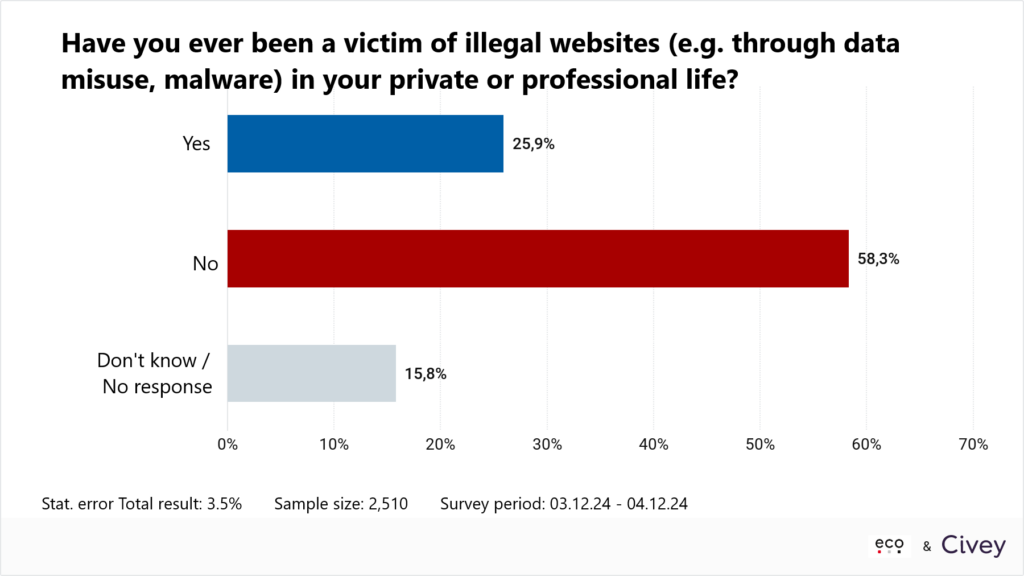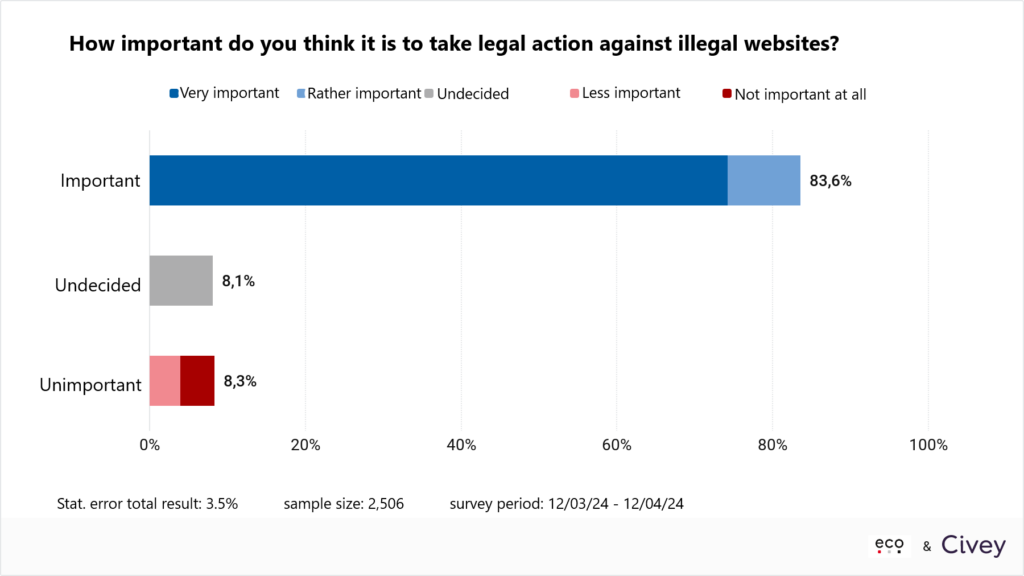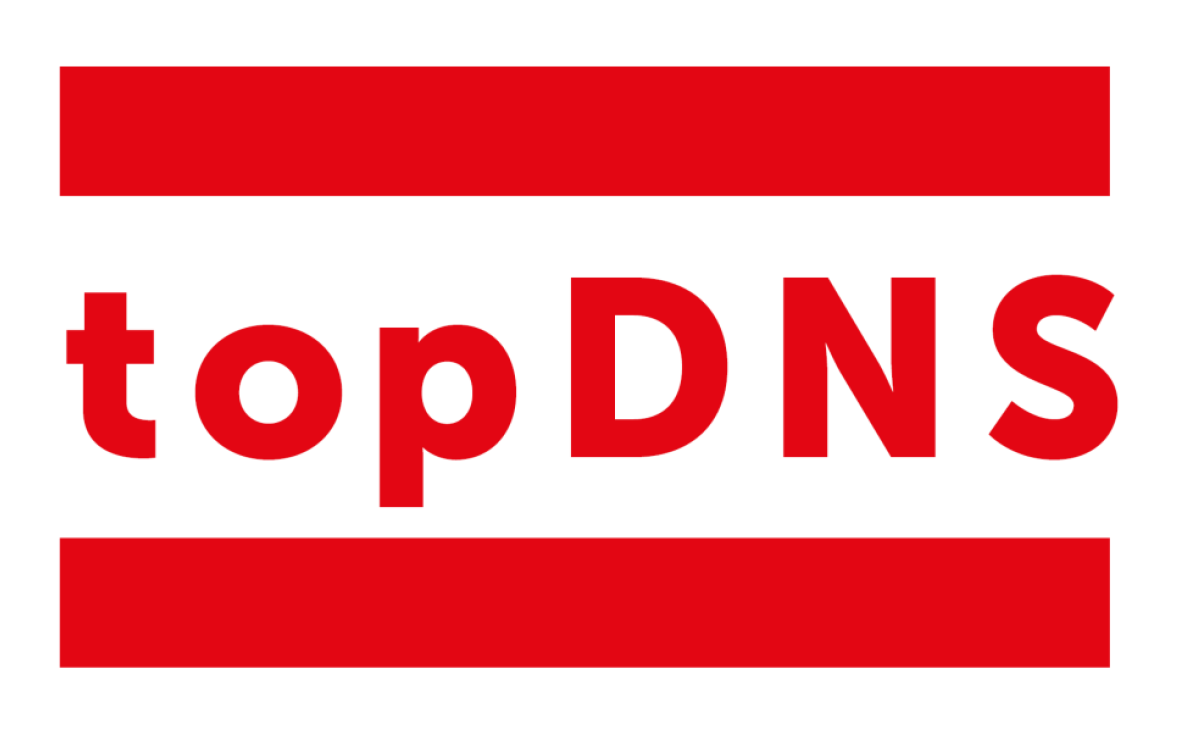- 25.9% of respondents state that they have already been victims of illegal websites
- Around 85% of Germans consider legal action against illegal websites to be important
- A video by eco’s topDNS initiative explains how illegal online content can be effectively combatted
The Internet is a daily companion for billions of people worldwide, enabling them to make their lives more connected, efficient and flexible. However, the World Wide Web also has its dark side: one of these is illegal websites, which can harm those affected by data misuse or malware, among other things. According to a new representative survey conducted by the market and opinion research institute Civey on behalf of eco – Association of the Internet Industry, one in four Germans (25.9%) has already fallen victim to such illegal websites. At the same time, there is a strong call for legal measures to be taken against such online content: around 85% of those surveyed believe it is important to take legal action against illegal websites.
Thomas Rickert, Director of the Names & Numbers Forum of the Association at the Internet Industry, comments: “The Internet is not a lawless space. Citizens, companies and institutions must be adequately protected from illegal online content. To achieve this, it is essential that such content is effectively and sustainably removed.”
Domain shutdowns threaten the Internet
A significant challenge in dealing with illegal online content currently lies in the fact that more and more stakeholders are demanding that private-sector Internet infrastructure providers should take it upon themselves to shut down domains such as https://international.eco.de/ if they even suspect that illegal content is being hosted there. However, these providers usually do not have the means to determine whether content or services are illegal, which leads to major legal uncertainties on the part of the infrastructure providers.
Furthermore, domain shutdowns are ineffective, as Thomas Rickert explains: “Domain shutdowns only provide a very short-term remedy for illegal online content, since the content is neither sustainably nor completely deleted if the hosting provider continues to store the content for retrieval. This content can simply continue to be distributed via other domains or IP addresses.” Furthermore, this approach can result in enormous collateral damage if uninvolved providers are also affected by a shutdown. Rickert clarifies: “If an online retailer offers illegal items and the entire platform is shut down, as a result all other retailers who have operated entirely legally are also affected.” A domain shutdown can therefore always mean immense economic loss as well as a restriction of freedom of expression and diversity.
New topDNS explainer video shows that “Take-Down Instead of Blocking” is an effective measure against illegal online content
Instead of shutting down domains, the Association of the Internet Industry advocates that illegal content should be deleted where it is posted online. In a new explainer video, the Association’s topDNS initiative vividly demonstrates how successfully action can be taken against criminal content. The “take-down instead of blocking” approach plays a key role here. “The practice of deletion has already proven to be effective in the work of the eco Complaints Office. By removing content directly at the source, we not only prevent further distribution, but also strengthen the responsibility of all parties involved,” says Rickert. This practice also aligns with the preference of around 85% of respondents that legal action should be taken against illegal websites.
Thomas Rickert emphasises: “The responsibility for dealing with illegal content must lie with courts and law enforcement agencies that not only have the authority, but also, and above all, the necessary expertise. In the long term, the Internet industry and public authorities must work hand in hand and implement uniform and legal processes to make the Internet safer for everyone.”
Illegal online content can be reported anonymously to the eco Complaints Office, where a trained team of legal experts evaluates and removes it in collaboration with public authorities: https://international.eco.de/topics/policy-law/eco-complaints-office/report-a-complaint/
Watch the new explainer video of the topDNS initiative:


